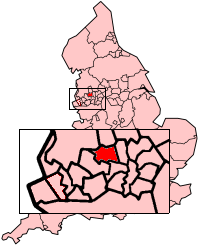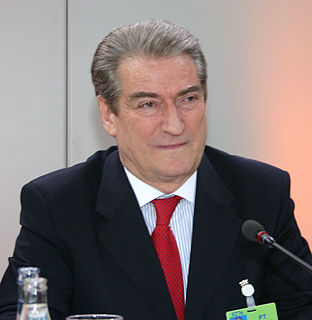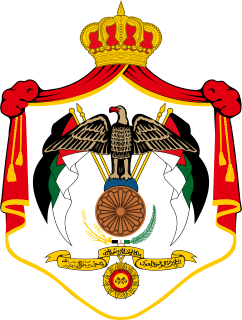Regular elections in Croatia are mandated by the Constitution and legislation enacted by Parliament. The presidency, Parliament, county prefects and assemblies, city and town mayors, and city and municipal councils are all elective offices. Since 1990, five presidential elections have been held. During the same period, nine parliamentary elections were also held. In addition, there were six nationwide local elections. Croatia has held two elections to elect 11 members of the European Parliament following its accession to the EU on 1 July 2013.

Elections in Ukraine are held to choose the President, Verkhovna Rada, and local governments. Referendums may be held on special occasions. Ukraine has a multi-party system, with numerous parties in which often not a single party has a chance of gaining power alone, and parties must work with each other to form coalition governments.

Philippine elections are of several types. The president, vice-president, and the senators are elected for a six-year term, while the members of the House of Representatives, governors, vice-governors, members of the Sangguniang Panlalawigan, mayors, vice-mayors, members of the Sangguniang Panlungsod/members of the Sangguniang Bayan, barangay officials, and the members of the Sangguniang Kabataan are elected to serve for a three-year term.

The 1998 Bolton Metropolitan Borough Council election took place on 7 May 1998 to elect members of Bolton Metropolitan Borough Council in Greater Manchester, England. One third of the council was up for election and the Labour party kept overall control of the council.
The media of Libya consists of a broad range of newspapers, TV channels, radio stations, and websites mostly set up during or after the Libyan Civil War, which removed previously tight restrictions on freedom of the press and freedom of speech. By the summer of 2012, there were over 200 registered newspapers, over 20 TV channels, and 200 radio stations.

Municipal elections were held in South Africa on 18 May 2011, electing new councils for all municipalities in the country. Municipal elections are held every five years, and the previous municipal elections were held in 2006. The first municipal elections following the reorganisation of municipalities took place in December 2000.

The National Transitional Council of Libya, sometimes known as the Transitional National Council, was the de facto government of Libya for a period during and after the Libyan Civil War, in which rebel forces overthrew the Libyan Arab Jamahiriya of Muammar Gaddafi. The NTC governed Libya for a period of ten months after the end of the war, holding elections to a General National Congress on 7 July 2012, and handing power to the newly elected assembly on 8 August.

The Albanian local elections of 2011 took place on 8 May 2011 in Albania. Electors were asked to elect their municipality's mayor, municipal council members, municipal unit mayor, and municipal unit members. The elections were administrated by the Central Election Commission of Albania. Only 9 of the 384 winning candidates were women.

Parliamentary elections were held in Libya on 25 June 2014 for the House of Representatives. Whilst all candidates ran as independents, the elections saw nationalist and liberal factions win the majority of seats, with Islamist groups being reduced to only around 30 seats. Election turnout was very low at 18%.

Elections for a General National Congress (GNC) were held in Libya on 7 July 2012, having been postponed from 19 June. Once elected, the General National Congress was to appoint a Prime Minister and Cabinet. The GNC was originally to be charged with appointing a Constituent Assembly to draw up Libya's new constitution, but the National Transitional Council (NTC) announced on 5 July that the Assembly would instead be directly elected at a later date.
The 2012 Bani Walid uprising was an event which started on 23 January 2012 due to an incident in the city of Bani Walid in which the "May 28 Brigade" militia wished to arrest local men in unclear circumstances. The May 28 Brigade and their compound were then attacked by local fighters who then took control of the town. The incident, the combatants, and the motives of the two main belligerents — the May 28 Brigade and Brigade 93 — remain uncertain and contentious. The conflict was originally reported to be an attack by Gaddafi loyalists by local NTC officials. However, tribal leaders and residents have denied any affiliation with Gaddafi's remnants, stating their goal was the establishment of their own council in the city. Similarly Britain's Foreign Office has dismissed claims of this incident representing a pro-Gaddafi attack against the NTC, stating that this was a dispute between tribal leaders of the Warfalla tribe and the NTC.

Since the end of the 2011 Libyan Civil War, which overthrew Muammar Gaddafi, there has been violence involving various militias and the new state security forces. The violence has escalated into the current 2014 Libyan Civil War.

The Second Libyan Civil War is an ongoing conflict among rival factions seeking control of the territory and oil of Libya. The conflict at the beginning was mostly between the House of Representatives (HoR) government that was controversially elected in 2014, also known as the "Tobruk government"; and the rival General National Congress (GNC) government, also called the "National Salvation Government", based in the capital Tripoli, established after Operation Odyssey Dawn and the failed military coup.

Municipal elections in Qatar were held for the fifth time on 13 May 2015. Five women contested the polls as candidates. Two women were elected to the Central Municipal Council (CMC) after winning their constituencies, heralding the first time two women have occupied seats in the council. This round of elections witnessed the merging of a number of depopulated constituencies and the addition of several new constituencies.
This is a detailed timeline of the Libyan Civil War (2014–present).
Clashes have been ongoing in West Libya since 14 October 2016. A coup d'état attempt was conducted by the former head of the National Salvation Government Khalifa al-Ghawil against Prime Minister Fayez al-Sarraj, the head of Libya's GNA Government.

The Boston mayoral election of 2017 was held on Tuesday, November 7, 2017, to elect the mayor of Boston, Massachusetts. Incumbent Democratic mayor Marty J. Walsh won re-election to a second term, defeating District 7 City Councilor Tito Jackson, and two long-shot candidates, Robert Cappucci and Joseph Wiley.
On 18 May 2017, clashes broke out in Brak al-Shati airbase between the LNA and the forces of Misrata, and 141 people were killed, according to Benghazi-based LNA military spokesman, Ahmad al-Mismari. He also said that the casualties included 103 army soldiers and unspecified numbers of civilians. The LNA launched air strikes on militant sites near the area in retaliation.

On 15 August 2017, Jordan held local elections for three levels of government: mayoralties, municipal and local councils, and governorate councils.
















